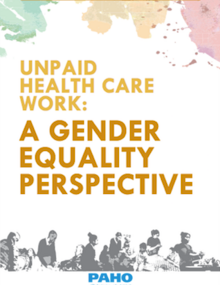A debate on public goods is urgently needed in health care. Care must be recognized as a social function, as an occupation and, at the same time, as a human right—which imposes binding obligations to comply with precise standards of quality, quantity, suitability, adaptability, and accessibility, among others. It is a complex and invisible task, that may be done as part of a medical treatment, post-surgical recovery process, or permanent support in cases of chronic illness, disability, or mental health conditions. And it tends to be provided mainly in the home, by women, without remuneration. In Latin America, care has not been included in a coordinated and specific public health policy agenda but has been advanced through isolated actions—in many cases highly fragmented and heterogeneous—without a clear awareness of the public nature of care and the associated responsibility of the State. Accordingly, this document takes a gender and rights-based approach. It starts with an analysis of the main definitions of unpaid work in the health sector, and then focuses on initiatives in three Latin American countries (Colombia, Costa Rica, and Uruguay) with regard to measurement, valuation, integration, and recognition in national health systems or policies, in care models, and in time-use surveys. The conclusions propose recommendations aimed at addressing unpaid care as an essential element of social policies in general, and health policies in particular, from a gender and rights-based perspective.
|

